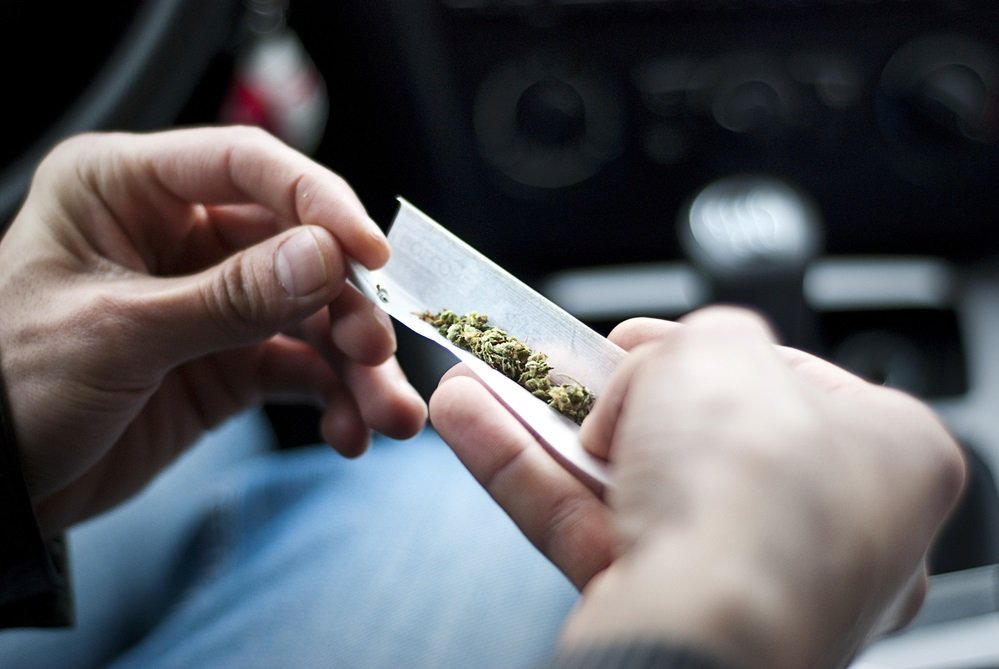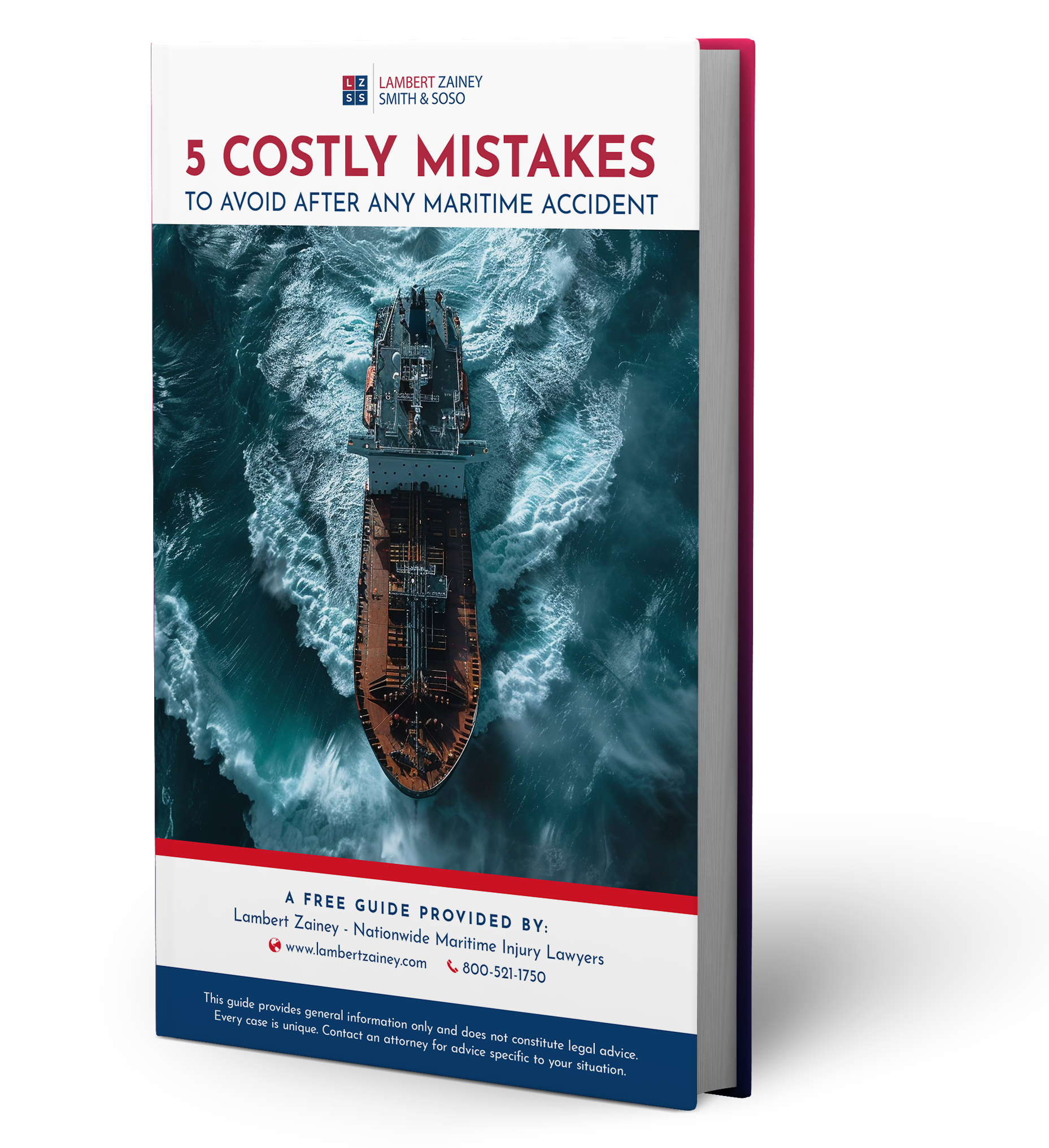The State vs. Federal Confusion

Since this article was first published in 2018, the landscape for marijuana has changed dramatically. Recreational and medical marijuana use is now legal in a majority of states. This growing trend has led many workers to ask a critical question: If I can legally use marijuana on land in my home state, can I still be fired for testing positive while working in the maritime industry?
The short answer is: Yes.
The maritime industry operates under a strict set of federal regulations, and when federal and state laws conflict, federal law always prevails. Here is what maritime workers need to know about drug testing, federal jurisdiction, and their legal rights.
1. Federal Law and the “Safety-Sensitive” Worker
Maritime jobs — from deckhands and engineers to captains and dockworkers — are classified as “safety-sensitive” positions by the U.S. government.
The Agencies and the Law
- Federal Jurisdiction: The maritime industry is regulated by federal agencies, primarily the U.S. Coast Guard (USCG) and the Department of Transportation (DOT).
- The Law: The Omnibus Transportation Employee Testing Act of 1991 requires mandatory drug testing for all transportation employees in these safety-sensitive roles.
- The Drug: Under federal law, marijuana is currently classified as a Schedule I controlled substance, though the Justice Department has proposed rescheduling it to Schedule III. Until a final rule is published, marijuana remains Schedule I and is treated the same for testing purposes as it was 30 years ago.
The Key Takeaway: Even if you have a medical marijuana card or live in a state where recreational use is legal, federal maritime regulations still require employers to test for THC, and a positive result is considered a violation. This remains true regardless of any pending federal rescheduling proposals.
2. What Happens When a Maritime Worker Fails a Drug Test?
If you are a maritime worker and fail a DOT-mandated drug test, your employer is required to take immediate action. This is not the employer’s choice; it is a federal mandate.
The Immediate Consequences
- Immediate Removal: You must be immediately removed from all safety-sensitive functions.
- No Return to Duty: You are not allowed to return to your job until you complete a mandatory process known as the Return-to-Duty procedure.
The Mandatory Return-to-Duty Process
A failed drug test triggers a strict process that all workers must follow before they are eligible to return to work:
- Evaluation by a SAP: You must undergo an evaluation by a Substance Abuse Professional (SAP). The SAP is an expert who recommends the course of action, which may include education, counseling or treatment.
- Compliance: You must successfully complete the course, counseling, or treatment prescribed by the SAP.
- Return-to-Duty Test: You must provide a breath and/or urine specimen that tests negative for drugs and/or alcohol prior to returning to work. This test is conducted under direct observation.
- Follow-Up Testing: Once back at work, you are subject to unannounced follow-up testing at least six times in the first year, with the possibility of this unannounced testing lasting up to five years. These tests are also conducted under direct observation.
Important Note: While federal regulations require your removal from safety-sensitive duties, employers are not obligated to retain your employment or offer you the opportunity to return. Many employers have zero-tolerance policies that result in termination.
3. What If I Was Injured in an Accident?
If you are injured in a maritime accident, the employer will almost certainly require a post-accident drug test.
- A Positive Test Complicates Your Case: A positive drug test will make any personal injury claim — whether under the Jones Act, LHWCA or other laws — significantly more complicated. The employer and their insurance company will immediately try to argue that your impairment was the sole cause of the accident.
- A Positive Test Does Not End Your Case: A positive drug test does not automatically mean you lose your right to compensation. If the injury was caused, in whole or in part, by the negligence of the ship owner, crew, or a condition of the vessel (unseaworthiness), you may still have a case. For example:
- If the accident was caused by faulty equipment or an unseaworthy vessel, the employer is still negligent.
- If the accident was caused by the negligence of another crew member, the employer is still responsible under the Jones Act.
The Law Firm’s Role
A positive test creates a legal fight, but our job is to prove that the employer’s negligence was a direct cause of your injury. If we can prove negligence on the employer’s part, you can still recover compensation for your medical bills, lost wages, and pain and suffering.
Get Our FREE Guide to Protect Your Claim
What you do after an accident is critical. Insurance companies will try to get you to make mistakes that can hurt your claim. Our free guide can help you avoid these traps.
Download our complimentary guide: “5 Costly Mistakes to Avoid After Any Maritime Accident” to arm yourself with the knowledge you need to protect your rights.
Get Answers Today: Talk to a Maritime Injury Lawyer
The maritime industry is one of the most dangerous in the world. When you are injured, the laws that protect you are confusing, and your employer will use every rule — including drug testing laws — to avoid paying your claim.
If you have been injured on a vessel, oil rig or dock, the best thing you can do is speak with an attorney immediately.
Lambert Zainey has decades of experience helping injured maritime workers navigate the complex intersection of injury law and federal drug testing mandates.
If you’re worried about your case, take our 60-second quiz, or call our nationally recognized maritime injury lawyers at 800-521-1750 for a free, confidential consultation today.
The State vs. Federal Confusion

Since this article was first published in 2018, the landscape for marijuana has changed dramatically. Recreational and medical marijuana use is now legal in a majority of states. This growing trend has led many workers to ask a critical question: If I can legally use marijuana on land in my home state, can I still be fired for testing positive while working in the maritime industry?
The short answer is: Yes.
The maritime industry operates under a strict set of federal regulations, and when federal and state laws conflict, federal law always prevails. Here is what maritime workers need to know about drug testing, federal jurisdiction, and their legal rights.
1. Federal Law and the “Safety-Sensitive” Worker
Maritime jobs — from deckhands and engineers to captains and dockworkers — are classified as “safety-sensitive” positions by the U.S. government.
The Agencies and the Law
- Federal Jurisdiction: The maritime industry is regulated by federal agencies, primarily the U.S. Coast Guard (USCG) and the Department of Transportation (DOT).
- The Law: The Omnibus Transportation Employee Testing Act of 1991 requires mandatory drug testing for all transportation employees in these safety-sensitive roles.
- The Drug: Under federal law, marijuana is currently classified as a Schedule I controlled substance, though the Justice Department has proposed rescheduling it to Schedule III. Until a final rule is published, marijuana remains Schedule I and is treated the same for testing purposes as it was 30 years ago.
The Key Takeaway: Even if you have a medical marijuana card or live in a state where recreational use is legal, federal maritime regulations still require employers to test for THC, and a positive result is considered a violation. This remains true regardless of any pending federal rescheduling proposals.
2. What Happens When a Maritime Worker Fails a Drug Test?
If you are a maritime worker and fail a DOT-mandated drug test, your employer is required to take immediate action. This is not the employer’s choice; it is a federal mandate.
The Immediate Consequences
- Immediate Removal: You must be immediately removed from all safety-sensitive functions.
- No Return to Duty: You are not allowed to return to your job until you complete a mandatory process known as the Return-to-Duty procedure.
The Mandatory Return-to-Duty Process
A failed drug test triggers a strict process that all workers must follow before they are eligible to return to work:
- Evaluation by a SAP: You must undergo an evaluation by a Substance Abuse Professional (SAP). The SAP is an expert who recommends the course of action, which may include education, counseling or treatment.
- Compliance: You must successfully complete the course, counseling, or treatment prescribed by the SAP.
- Return-to-Duty Test: You must provide a breath and/or urine specimen that tests negative for drugs and/or alcohol prior to returning to work. This test is conducted under direct observation.
- Follow-Up Testing: Once back at work, you are subject to unannounced follow-up testing at least six times in the first year, with the possibility of this unannounced testing lasting up to five years. These tests are also conducted under direct observation.
Important Note: While federal regulations require your removal from safety-sensitive duties, employers are not obligated to retain your employment or offer you the opportunity to return. Many employers have zero-tolerance policies that result in termination.
3. What If I Was Injured in an Accident?
If you are injured in a maritime accident, the employer will almost certainly require a post-accident drug test.
- A Positive Test Complicates Your Case: A positive drug test will make any personal injury claim — whether under the Jones Act, LHWCA or other laws — significantly more complicated. The employer and their insurance company will immediately try to argue that your impairment was the sole cause of the accident.
- A Positive Test Does Not End Your Case: A positive drug test does not automatically mean you lose your right to compensation. If the injury was caused, in whole or in part, by the negligence of the ship owner, crew, or a condition of the vessel (unseaworthiness), you may still have a case. For example:
- If the accident was caused by faulty equipment or an unseaworthy vessel, the employer is still negligent.
- If the accident was caused by the negligence of another crew member, the employer is still responsible under the Jones Act.
The Law Firm’s Role
A positive test creates a legal fight, but our job is to prove that the employer’s negligence was a direct cause of your injury. If we can prove negligence on the employer’s part, you can still recover compensation for your medical bills, lost wages, and pain and suffering.
Get Our FREE Guide to Protect Your Claim
What you do after an accident is critical. Insurance companies will try to get you to make mistakes that can hurt your claim. Our free guide can help you avoid these traps.
Download our complimentary guide: “5 Costly Mistakes to Avoid After Any Maritime Accident” to arm yourself with the knowledge you need to protect your rights.
Get Answers Today: Talk to a Maritime Injury Lawyer
The maritime industry is one of the most dangerous in the world. When you are injured, the laws that protect you are confusing, and your employer will use every rule — including drug testing laws — to avoid paying your claim.
If you have been injured on a vessel, oil rig or dock, the best thing you can do is speak with an attorney immediately.
Lambert Zainey has decades of experience helping injured maritime workers navigate the complex intersection of injury law and federal drug testing mandates.
If you’re worried about your case, take our 60-second quiz, or call our nationally recognized maritime injury lawyers at 800-521-1750 for a free, confidential consultation today.









